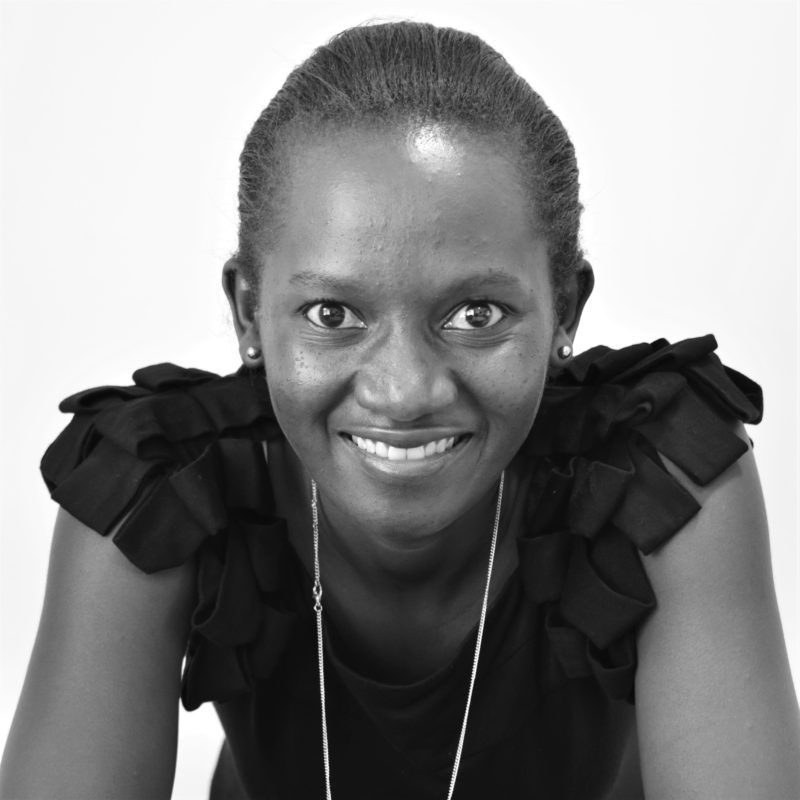
The Initiative to Develop African Research Leaders (IDeAL) is a high-quality training programme designed to develop outstanding young African scientists into world-class research leaders. It is hosted by KEMRI – Wellcome Trust Research Programme in Kenya. IDeAL is available to young researchers, from Undergraduate Research Attachments to Postdoctoral Fellowships, with the aim of keeping scientists at African institutions through a defined programme of recruitment, supervision and mentorship with the goal of establishing unique career paths for all students and fellows.
IDeAL is one of the 11 initiatives under DELTAS Africa (Developing Excellence in Leadership, Training and Science in Africa) funded by the African Academy of Sciences (AAS)’s and Alliance for Accelerating Excellence in Science in Africa (AESA) and supported by the New Partnership for Africa’s Development Planning and Coordinating Agency (NEPAD Agency) with funding from the Wellcome Trust and the United Kingdom government.
IDeAL Team comprises over 200 persons including postdoctoral fellows, students, interns, mentors, supervisors, and the secretariat.
For more details on the schemes supported under IDeAL, visit the Programmes Page.
IDeAL builds on previous capacity strengthening activities at the KEMRI – Wellcome Trust Research Programme. As illustrated in figure below capacity building at the Programme has gone through different phases. During the earliest phase, 1989-2008, the emphasis was on building core structures to support research and training including high quality laboratory, clinical, field and ICT infrastructure. As these core structures expanded there was a gradual increase in the number of local researchers training at Masters and PhD levels, albeit on an ad hoc basis. It eventually became clear that there was need to develop a coherent framework to manage and scale up research training activities at the Programme. This was achieved through the awarding of a Strategic Award amounting to 12 Million Pounds by the Wellcome Trust. The award supported research training activities from 2008 to 2015.

As a result of the Award capacity building activities in the Programme expanded markedly. In addition, the award facilitated the centralisation and harmonization of capacity building management by providing a secure financial base that enabled long term planning of career paths.
In brief, between 2008 and 2015, 52 students were support to undertake PhDs and also received a further one year Postdoctoral support. 32 of these are Postdoctoral Reseachers at KWTRP and elsewhere while 8 are lecturers in local Universities. 5 have already received Wellcome Trust Training Fellowships. 88 people were supported for Masters training either directly or through support leading to the successful application for external Masters Fellowships (e.g. the Wellcome Trust Masters Fellowship). We have provided internships to 172 recent Kenyan graduates. Over 30 of who have now progressed through the research training to Postdoctoral level. Majority of the rest are either research assistants or Masters students elsewhere.
Importantly, work supported by the SA has contributed to development of a number of health policies and practice guidelines in Kenya and Globally particularly for prevention and treatment of early childhood illnesses. In addition, it has been presented in over 200 conferences and resulted in over 300 peer-reviewed publications (>150 first author papers – >50 in journals with an Impact Factor of >4, and > 150 non-first author papers – >30 in journals with an Impact Factor of >4.
Vision
African-led research solving African and global health issues
Mission
To generate a critical mass of African Research Leaders
Objective
Attract – To attract young African to research
Train – To provide high quality research training
Retain – To support the retention of African researchers in the Continent
Nurture – To nurture emerging African research leaders

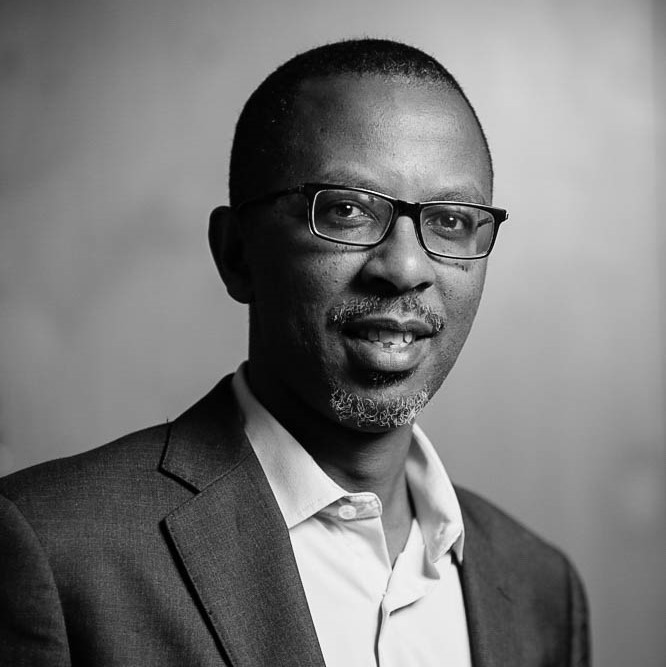
Prof. Sam Kinyanjui
 Email : SKMuchina@kemri-wellcome.org
Email : SKMuchina@kemri-wellcome.org Prof. Sam Kinyanjui is the Head of Training and Capacity Building at the KEMRI-Wellcome Trust Programme in Kenya and the Director for the Initiative to Develop African Research Leaders (IDeAL). Prior to the current position, he spent 16 years doing research on the immunology and molecular biology of malaria parasites. During this period he developed a strong interest in capacity building for health research in Africa.
As the Head of Training and Capacity Building at the KWTRP in Kenya, he provides scientific and strategic guidance for academic training towards research leadership. His key achievement has been the development and implementation of a comprehensive research career framework for attracting, training and retaining African research leaders. Through the framework, Prof. Kinyanjui has overseen the training of over 200 graduate interns, the majority of who have taken up a research career after the internship. This scheme has now been developed into a nationally accredited Postgraduate Diploma in Health Research Methods. He has also overseen over 100 Masters and over 70 PhD training since 2008. In 2015 Prof. Kinyanjui was awarded a further 8 million pounds by the Wellcome Trust/DIFD to build on this work through the Initiative to Develop African Research Leaders (IDeAL)
Regionally, Prof. Kinyanjui is involved in advocacy for increased commitment to building research capacity in Africa by both African governments and funding agencies. In 2006 he worked at the African Union Headquarter promoting health research agenda within the Union. He also sits on the advisory boards of several African capacity building initiatives including MUIIplus, SSACAB, SANTHE and the TDR Global Community Adhoc Workgroup.

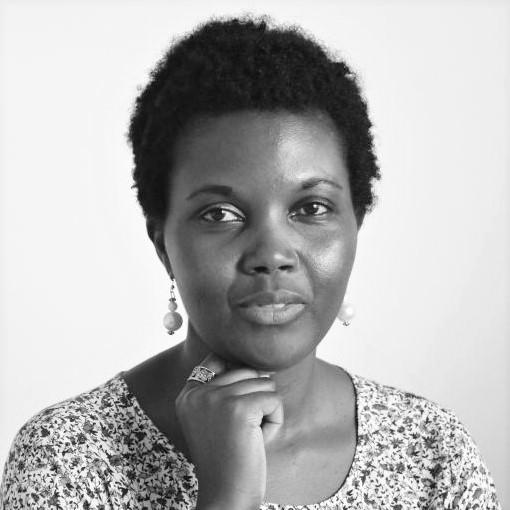
Dr. Dorcas Mbuvi

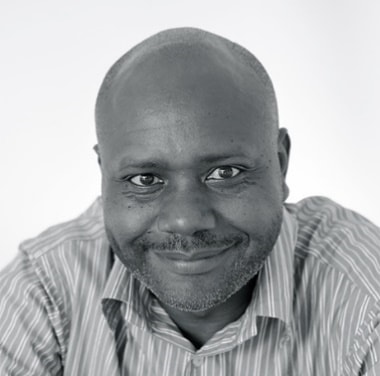
Dr. Francis Ndung’u
 Email : FNdungu@kemri-wellcome.org
Email : FNdungu@kemri-wellcome.org Francis did his earlier education in Nairobi, Kenya, before proceeding to the National Institute for Medical Research, London, UK, where he did his PHD in immunology with Dr Jean Langhorne and Prof Kevin Marsh. He was awarded the PHD in 2005, after which he took up a post-doctoral training position at the same institute, and was successful at implementing a new programme of research in quantifying antigen-specific memory B cells in a mouse model of malaria. He moved back to Kenya in 2008 as post-doctoral researcher, with the aim of obtaining own funding to start and build a research group. His main areas of interest are: (i) immunological memory to malaria in historically infected individuals, and, (ii) hosts factors responsible for increased susceptibility to P falciparum malaria in a small proportion of children that experience excessively more malaria than expected.


Mwendwa Mutuku
 Email : smutuku@kemri-wellcome.org
Email : smutuku@kemri-wellcome.org Mutuku holds a B.A Degree in Journalism and Media Studies from the University of Nairobi and a member of the Public Relations Society of Kenya. He has previously worked for local and international organisations such as the Africa Union/United Nations Information Support Team in Somalia, Kenya’s Ministry of Water and Irrigation and FilmAid International.
He is a passionate communication professional who has managed media and public relations for national and intergovernmental agencies and non-profits and participated in successful communications and media campaigns. He is an all-rounder with nine years of experience in public relations; digital strategy development and execution; branding and marketing; graphic design and production of multimedia content. He believes in channelling the power of media to impact lives and influence positive social change on behalf of multilaterals, socially-oriented non-profits, and private-sector creative agencies. He is highly skilled in conceptual and visual storytelling.

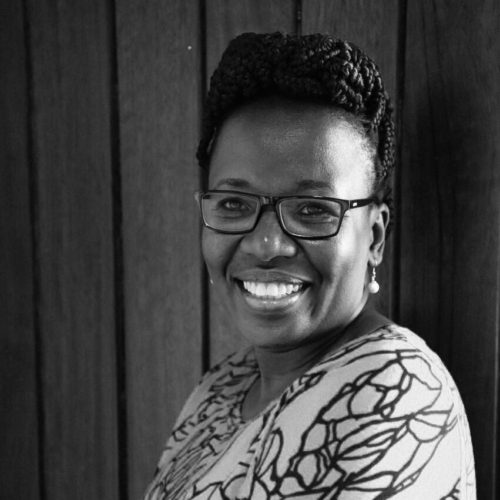
Liz Igombo-Murabu
 Email : LMurabu@kemri-wellcome.org
Email : LMurabu@kemri-wellcome.org Liz Igombo-Murabu is the Students’ Administrator for IDeAL and KEMRI-Wellcome Trust Research Programme. She has spent the last 10 years playing a vital role in ensuring the smooth and efficient management of the training of nearly 150 academic trainees ranging from school leavers and undergraduates attachees, Postgraduate Diploma, Masters, and PhD students and postdoctoral fellows funded under IDeAL.
She joined the KEMRI-Wellcome Trust Research Programme in 1996 and has served in different capacities within the Programme. She has been the training administrator since 2008 supporting both academic training and continuing professional development of over 800 staff. She also holds a HND in Executive Assistance, a Diploma in Administrative duties from Cambridge International College, UK, Certificate on Leadership and Management in Health Systems with the University of Washington and a Certificate in Computer Operations and Business Applications from The Mombasa Polytechnic. She is currently pursuing a Bachelor degree in Executive Business Administration Programme with specialization in Management and Administration with Cambridge International College, UK.

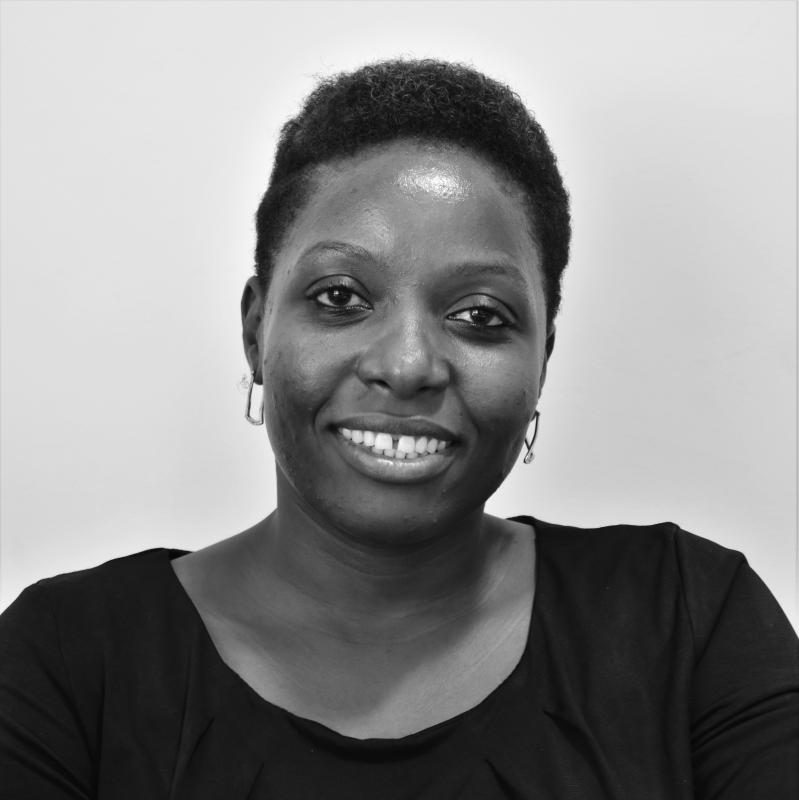
Rita Baya
 Email : RBaya@kemri-wellcome.org
Email : RBaya@kemri-wellcome.org Rita Baya joined KEMRI Wellcome Trust Research Programme in June 2012 and currently holds the position of an Administrative Assistant. She is tasked with Office management, Interface administrative functions of various projects, Travel Management from Reservations, transfers, travel authorization documents, Itinerary coordination, foreign & local travels, Organize & coordinate logistics for local and international meetings, trainings, seminars, workshops, conferences. Documentation i.e. reports, filing and documents archiving. She has over 5 years’ experience in Administration and holds a Bachelor degree in Administration from Kenya Methodist University.


David Ngui
 Email : DNgui@kemri-wellcome.org
Email : DNgui@kemri-wellcome.org David Ngui joined KEMRI Wellcome Trust Research Programme in November 2013 and is currently tasked with producing both internal management reports and grant donor reports with a key focus in ensuring timely, accurate and complete recording, reporting of financial transactions according to accounting best practice and donor reporting guidelines. He has over 5 years’ experience in auditing and finance, having previously worked as an Audit Assistant and Assistant Accountant in auditing and micro-finance institutions in Kenya.
He is a Certified Public Accountant and holds a Bachelor of Commerce degree in Accounting from Jomo Kenyatta University of Agriculture & Technology and is currently pursuing a Masters in Business Administration at Kenyatta University.

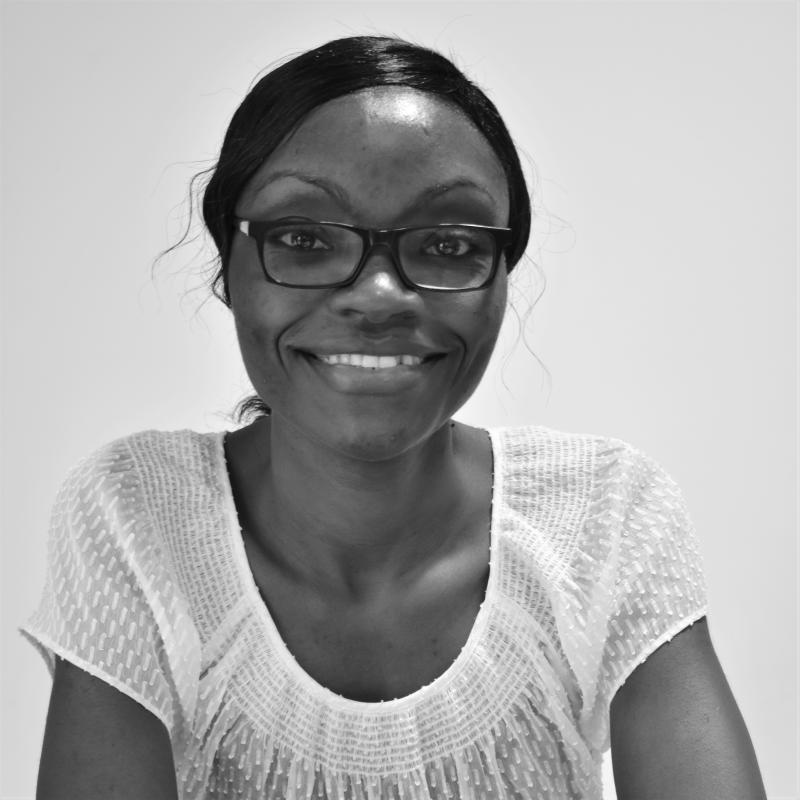
Florence Kirimi
 Email : FKirimi@kemri-wellcome.org
Email : FKirimi@kemri-wellcome.org Florence Kirimi joined the KEMRI-Wellcome Trust Research Programme in August 2016 as the Monitoring and Evaluation Officer for IDeAL. She is responsible for implementing the Monitoring and Evaluation activities of the Training Department, assisting the Head of Training in monitoring the Department’s activities on a regular basis, developing and maintaining the Department’s MIS and for collecting and analyzing different data in relation to the Department’s activities. She also prepares periodic reports on the training activities including those supported under IDeAL grant.
She holds a Masters’ Degree in Public Health with over 5 years’ experience in implementation of Monitoring and Evaluation for development projects which include developing M & E Plans, logical frameworks, output, monitoring and impact indicators for projects, participating in regular project reviews, Preparation of annual progress reports for feedback to donors and other stakeholders.


Dr. Alun Davies
Alun Davies has over 20 years experience in science education, health research and community engagement in Kenya: nine years as a science and senior teacher at urban and rural schools in Kenya; followed by eleven years as a researcher at KWTRP. Prior his current post, Alun managed an HIV research project in Kilifi, employing 50 staff at three sites to initiate HIV clinical trials. Alun’s current role in community engagement draws on a combination of his experience in education and health research towards facilitating engagement interactions between researchers and school students. Over the past six years, Alun has established a ‘Schools Engagement Programme’ (SEP) which facilitates interactions between researchers and up to 1000 students form 25 schools a year. The activities are aimed at promoting positive attitudes towards science among secondary school students; and promoting mutual-understanding between health researchers and the community. SEP has also enabled Kilifi students’ views to be incorporated into the Nuffield Council on Bioethics Working Party report on Ethical Issues for Research Involving Children. Alun’s current research explores ways of evaluating engagement with health research using a combination of quantitative, qualitative and participatory approaches.


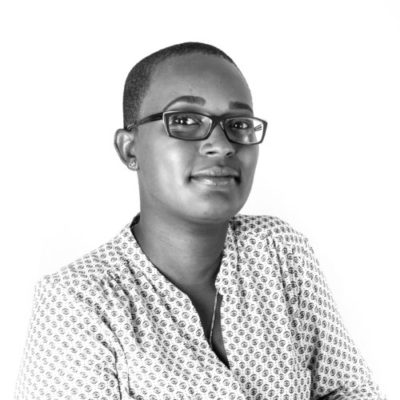
Dr. Sophie Uyoga
 Email : SUyoga@kemri-wellcome.org
Email : SUyoga@kemri-wellcome.org Sophie Uyoga has worked at the KEMRI Wellcome Trust Research Programme since 2004. In 2008, Sophie received a PhD fellowship from the EU Marie-Curie-Action InterMal Training Programme under the mentorship of Prof. Paolo Arese (University of Torino) and Prof. Thomas Williams. In 2012, Sophie completed her PhD at the University of Heidelberg on mechanisms of removal of red blood cells during the development of severe malaria anaemia and protection afforded by red blood cell polymorphisms. In 2016, Sophie was awarded a Mid Career Research Fellowship by IDEAL and she will be investigating the mechanisms behind the development and treatment of severe anaemia with focus on the role of red blood cell genetics and quality of donor blood on recovery and survival post-transfusion

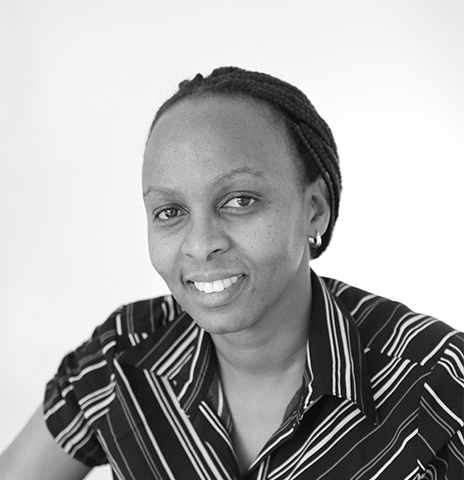
Dr. Eunice Nduati
I joined the KEMRI Wellcome Trust Research Programme (KWTRP) in Nairobi working on antimalarial drug resistance. In 2005 I transferred to Kilifi to pursue my interest in the immunology of infectious diseases under the Biology and Pathology of the Malaria Parasite (BiolMalPar) Ph.D. training programme. This was a collaborative programme with time spent between the UK and Kenya. My thesis was on understanding host immune responses, specifically B-cell regulation in malaria. On returning to Kenya, I was awarded 6 months funding by BIOMALPAR/European Molecular Biology Laboratories (EMBL) a European Union Initiative to understand the role of soluble factors, such as the B cell activating factor (BAFF) on B-cell differentiation and function. I then successfully obtained a Wellcome Trust Training Fellowship, which supported my work on B-cell regulation in HIV infection and exposure. The aim of this work was to understand whether exposure to HIV virus or antigens, antiretroviral drugs and/or an altered placental cytokine milieu, in utero, affects the developing immune system in infants born to HIV infected mothers but are themselves not infected. In HIV infection, I have been involved in understanding B cell phenotypic and functional changes in HIV infected children. Currently I hold a mid-career fellowship with the IDeAL program at KWTRP and working within the International AIDS Vaccine Initiative (IAVI)-Vaccine Immunology Science and Technology for Africa (IAVI-VISTA) consortium, which has established longitudinal HIV cohorts. My work involves understanding adaptive immune responses, specifically T cell and B cell functions in early HIV infection and how this may impact on subsequent disease outcomes.

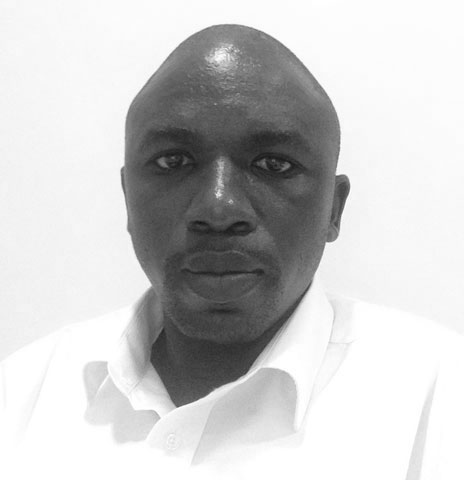
Dr. Charles Agoti
Mentors
Prof. James NokesCharles Agoti is a Mid Career Research Fellow (MCRF) under the IDeAL Programme. Prior receiving the fellowship Charles was working as Postdoctoral Bioinformacian with the Virus Epidemiology and Control (VEC) group within the KEMRI-Wellcome Trust Kilifi Programme. For more than 10 years,
Charles’ primary focus was generating and analyzing respiratory virus genomes to improve understanding on the underlying transmission and evolutionary patterns that allow persistence of these pathogens in host populations. Charles has made significant contributions into the understanding of the nature and variant composition of local seasonal respiratory syncytial virus (RSV, a leading cause of childhood pneumonia) epidemics and the role of genetic variation in RSV repeat infections.
The IDeAL MCRF supports Charles to extend this transmission genomics work to medically important enteric viruses. Specifically, Charles will be investigating viral diarrhea genomics pre and post-rotavirus vaccination in Kenya to understand virus source, transmission patterns and vaccine impact.

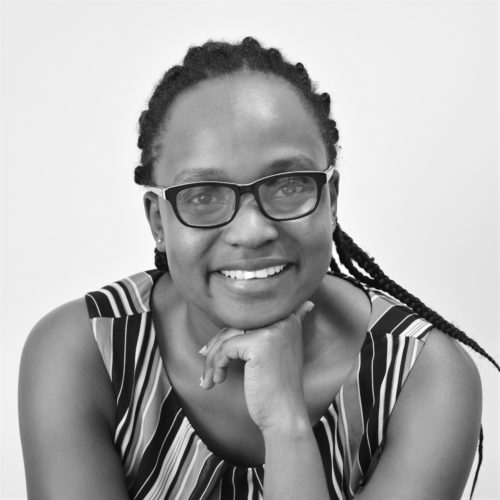
Dr. Julie Jemutai
 Email : JJemutai@kemri-wellcome.org
Email : JJemutai@kemri-wellcome.org Mentors
Prof. Jay BerkleyJulie is an IDeAL Early Career Postdoctoral Researcher with interests in applying and developing econometric and mathematical models. Her PhD research assessed technical efficiency and the effect of ownership in public and faith-based hospitals in Kenya. Her current focus is in economic evaluation of treatments for severely acute malnourished children as part of the FLACSAM (First Line Antimicrobials in Children with Complicated Severe Acute Malnutrition) Trial. She is particularly interested in assessing cost effectiveness of antibiotics administered to severely acute malnourished children. Her research work also aims to investigate the economic burden of antimicrobial resistance among children with severe acute malnutrition.

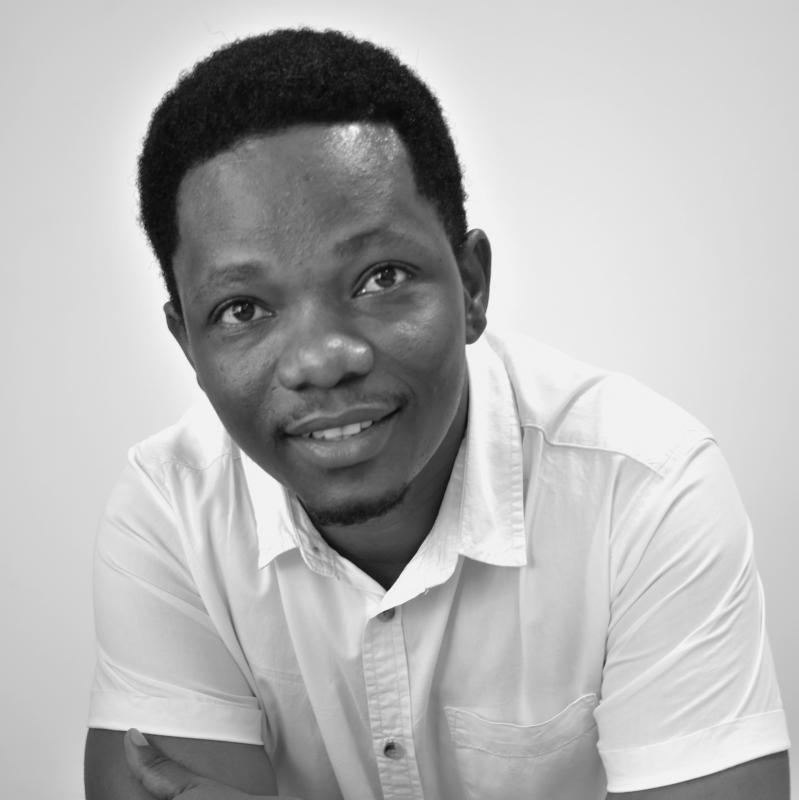
Dr. George Githinji
 Email : GGithinji@kemri-wellcome.org
Email : GGithinji@kemri-wellcome.org Mentors
Prof. James NokesI am an IDeAL early career postdoctoral fellow at the KEMRI-Wellcome Trust Research Programme. I utilise bioinformatics approaches to study virus evolution and transmission patterns during outbreaks. My current project investigates the role of minority variants in virus evolution and in reconstructing virus transmission chains.
I hold a bachelors degree in Biomedical Science and Technology from Egerton University and a PhD from the Open University (UK) advised by Dr Peter Bull (University of Cambridge), Prof Kevin Marsh (Oxford University) and Dr Britta Urban (University of Liverpool). My PhD thesis explored the extent of sequence and epitope diversity within a short region of the PfEMP1 molecule that is associated with characteristic expression patterns in severe and non-servere malaria cases.
Before joining the programme, I trained under Dr Patrick Duffy as a visiting student at the MoMs malaria project in Tanzania and SBRI (now Center for Infectious Disease Research) and attended bioinformatics courses at the University of Washington.

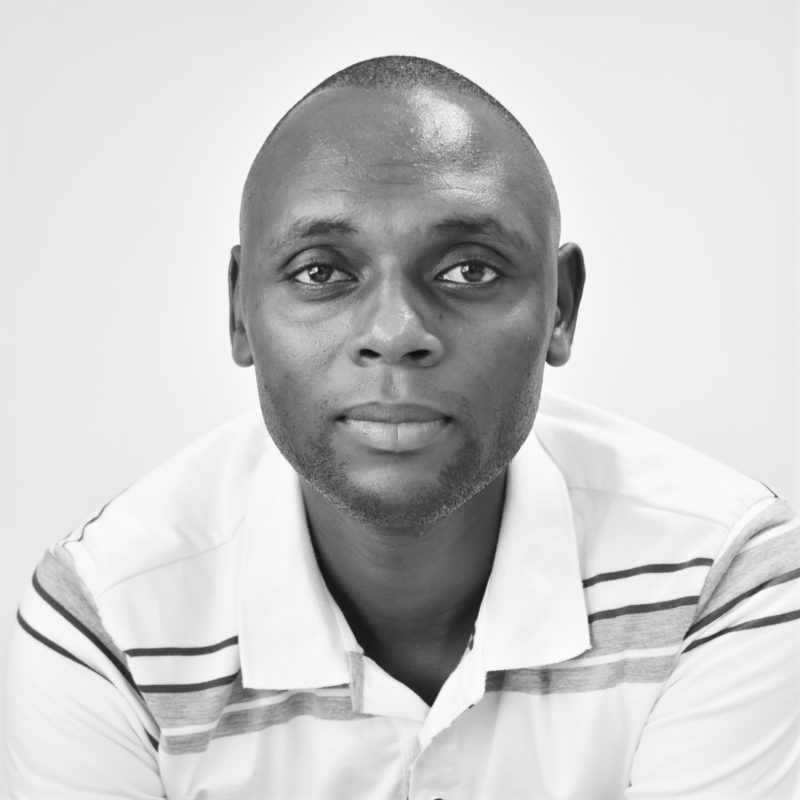
Dr. Daniel Kiboi
Daniel studied Biochemistry & Molecular Biology at JKUAT, Kenya. His postgraduate research focused on selecting and identifying molecular markers associated with antimalarial drugs piperaquine and lumefantrine resistance in rodent malaria parasites Plasmodium berghei. His study mapped promising mutations in proteins that are highly plausible candidates for mediators of drug action/resistance. During his PhD training, he visited Drs Oliver and Julian lab at the Wellcome Trust Sanger Institute. He trained on transfection work using gene knockout and epitope tagging, PlasmoGEM vectors for P. berghei and their application in validating resistance markers/drug transporters/targets. He later established and continued with the P. berghei transfection in KEMRI, Nairobi. Daniel joined the KEMRI-WTRP, Kilifi in 2016 as PostDoc under the WACCBIP Programme. His expanded focus is validating Plasmodium proteins associated not only with drug resistance but also to genes of interest in malaria immunity using both PlasmoGEM resources and CRISPR/Cas9 system.

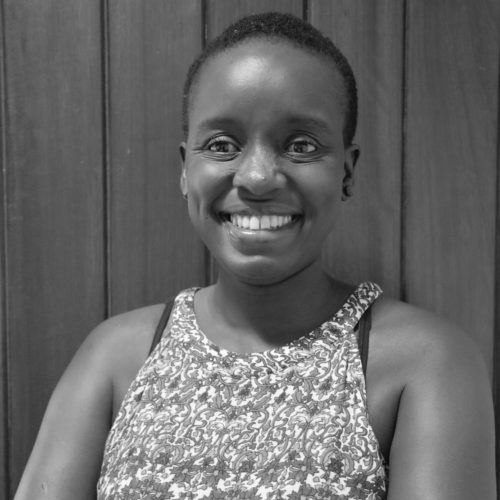
Dr. Mainga Hamaluba
I am a clinician trained in Paediatrics in Oxford, UK. During my clinical training, I worked at the Oxford Vaccine Group. The work contributing to my thesis looked at the population biology of Streptococcus pneumoniae in pre-school children in Oxfordshire and Kathmandu, Nepal. We also conducted a vaccine trial in infants which led to the introduction and informed the schedule of the 10-valent pneumococcal conjugate vaccine in Nepalese infants.
My current interests focus on identifying key indicators of poor early and late neonatal outcomes in Kenya, and testing novel and established interventions for improved neonatal survival and neurodevelopment.


Dr. Ambrose Agweyu
Mentors
Prof. Mike EnglishAmbrose is a Kenyan paediatrician and epidemiologist, based at the KEMRI-Wellcome Trust Research Programme in Nairobi. Working closely with the Kenya Ministry of Health in 2009, his early research involved conducting systematic reviews for a national exercise to adapt the World Health Organization pneumonia clinical practice guidelines using the GRADE methodology. Following this, Ambrose was invited to support similar exercises in Uganda and Rwanda. More recently, he was the principal investigator on a large pragmatic clinical trial comparing antibiotic treatments for childhood pneumonia. The findings of this study contributed towards a recent major revision in the Kenyan guidelines, and are likely to eventually influence practice in the region.
For his postdoctoral fellowship under the IDeAL Programme, Ambrose is analysing routine inpatient data collected from an existing clinical information network of 14 Kenyan hospitals to identify high risk groups of children with pneumonia as potential target populations for future interventional studies.
As a member of the core team brought together by the Government of Kenya to drive the Kenya Action Plan for the Prevention and Control of Pneumonia (KAPP), Ambrose is also actively involved in advocacy on how best to implement prevention and care for childhood pneumonia and campaigning for greater attention to be paid to this major childhood killer.

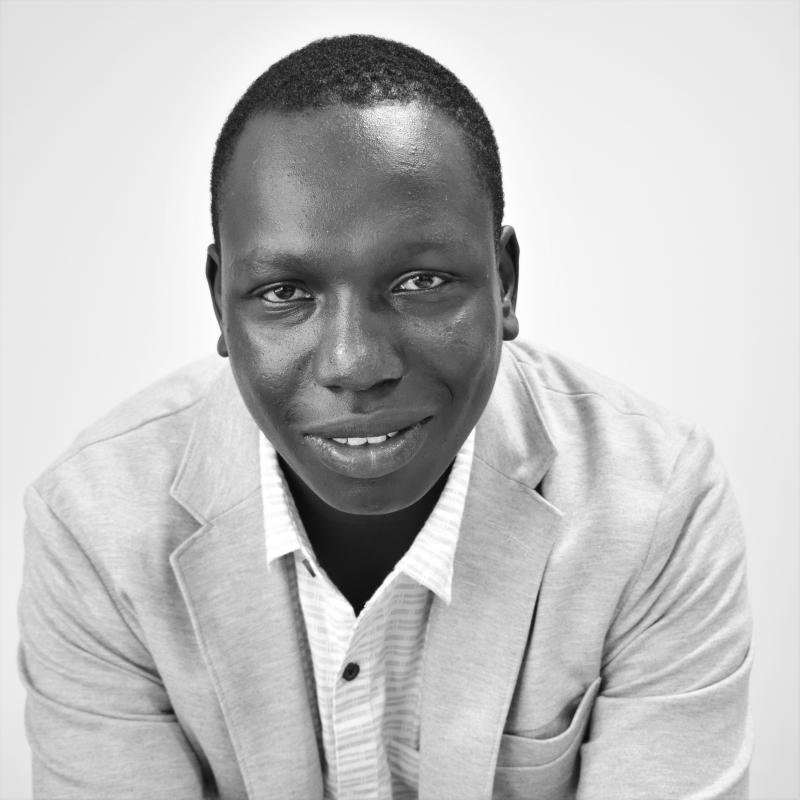
Dr. Nelson Kibinge
Mentors
Prof. James NokesNelson Kibinge is a postdoctoral researcher in the virus epidemiology and control (VEC) laboratory at KEMRI-Wellcome Trust since April 2016. He holds a BSc (Biology) degree from the University of Nairobi and an MSc and PhD (Computational Biology) from the Nara Institute of Science and Technology (NAIST), Japan. Although originally a biologist, he has recently focused on bioinformatics research involving development of computational tools for sequence analysis, phylogenetics and transcriptomics. His current research project focuses on designing optimum sampling strategies for RSV surveillance. He also has a significant interest in spatial epidemiology and computational ecology.

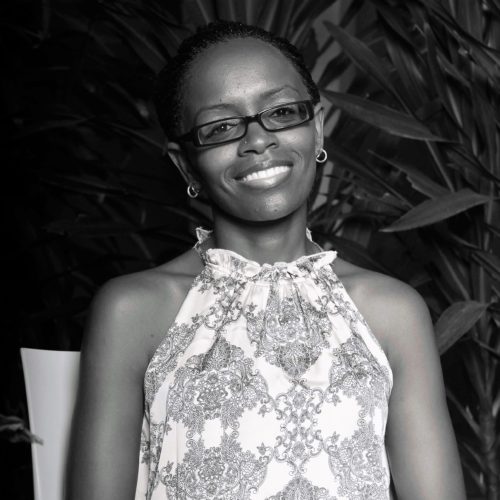
Dr. Kui Muraya
 Email : KMuraya@kemri-wellcome.org
Email : KMuraya@kemri-wellcome.org Kui Muraya is a Post-Doctoral Social Scientist at the KEMRI-Wellcome Trust Research Programme, Kenya with a particular interest in gender & health and social science research more broadly. She has a Bachelor of Arts degree (majoring in Psychology & Anthropology) from the University of Adelaide, Australia, and an Honours Degree in Health Sciences (General Practice) from the same institution. For her Honours Degree she undertook research work on the experiences of intimate partner violence amongst African refugee women who had been resettled in Australia. She obtained her PhD in Public Health and Social Care from the Open University, UK in 2014. Her PhD focused on exploring the interaction between household gender relations and community-based child nutrition interventions; with a focus on the implementation and use of such interventions. More recently she was a co-principal investigator in a multi-country study exploring gender and leadership within health systems in Kenya, Nigeria, and South Africa. She currently plays a leading role as a social scientist in one study site (Nairobi) of a multi-country study exploring (socioeconomic, cultural and household) factors that contribute to post-hospital discharge mortality in acutely ill undernourished and well-nourished children; with a goal to develop targeted actionable interventions to lower mortality. Her other research interests include qualitative research methods, health systems research, research uptake and communicating research evidence, and translation of research evidence into policy.

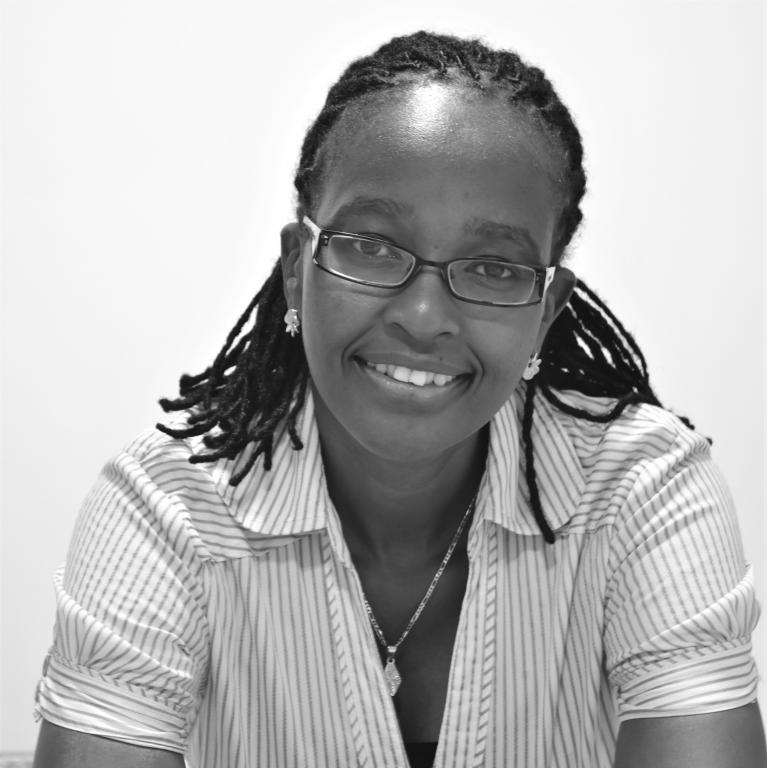
Dr. Linda Murungi
Linda holds a BSc. (Hons) in Biomedical Science and Technology, Maseno University, an MSc. in Immunology of Infectious Diseases, London School of Hygiene and Tropical Medicine, UK, on a Wellcome Trust MSc fellowship and a PhD in Life and Biomolecular sciences, Open University, UK awarded in 2014 and sponsored by KWTRP in collaboration with the Jenner Institute at the University of Oxford, UK. In 2015, she joined Centre for Biotechnology and Bioinformatics (UoN) as a visiting Postdoctoral Fellow teaching pathogen biology, immunology and molecular biology, assisting with MSc and PhD research projects and providing training in proposal writing and statistical analysis. She is currently an Early Career Postdoctoral Researcher at KWTRP in collaboration with University of Copenhagen, Denmark.
Her research project focuses on understanding mechanisms and targets of immunity to malaria using monoclonal antibodies. Her research interest is in immunology of infectious diseases and pathogen biology. She has 12 publications in peer-reviewed journals.


Dr. Sam Aketch
Mentors
Prof. Mike EnglishSam Akech is paediatrician with Dphil in Clinical Medicine from the University of Oxford, UK. He was initially based at the Kilifi site where he did studies leading to his PhD. He investigated haemodynamic status of children with severe febrile illnesses and conducted a number of clinical trials comparing different fluid regimes for treatment of shock in that population of children. He is currently a post-doctoral research fellow investigating risk factors for mortality and morbidity of common childhood conditions, guidance compliance and outcomes spanning hospitals (clusters) within Clinical Information Network. He aims inform case management of these conditions with high mortality, including triage, and identify outstanding questions that require pragmatic trials.

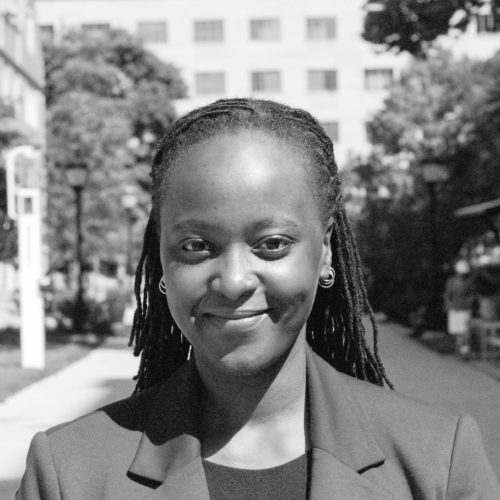
Dr. Silvia Kariuki
I am broadly interested in the genetic architecture of complex traits, and specifically identifying genetic factors associated with disease susceptibility. My doctoral thesis work at the University of Chicago involved endophenotype mapping to identify novel genetic polymorphisms associated with complex traits such as systemic lupus erythematosus (SLE) and vitamin D response in the immune system. My current project at the KEMRI-Wellcome Trust Research Program involves functional validation of several genetic polymorphisms that have been previously reported to confer substantial protection against severe malaria. I am interested in uncovering the molecular mechanisms through which these polymorphisms confer their protective effect, through application of several experimental techniques such as preference invasion assays, rosetting and cytoadhesion assays. A better understanding of the protective mechanisms afforded by these genetic polymorphisms could inform the development of new methods for the control and treatment of malaria.

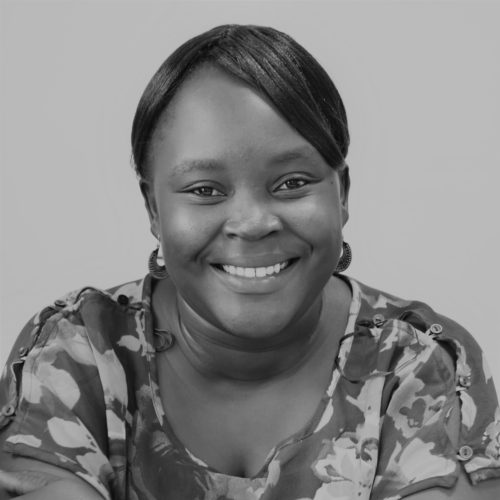
Dr. Rachel Aye
Mentors
Dr. Francis Ndung’uRacheal Aye is an immunologist working as a Postdoctoral Fellow at KEMRI-Wellcome Trust (KWTRP). In this role, Racheal aims to elucidate the reasons as to why the malaria vaccine efficacy is low at only 30%. Specifically, she will characterize antigen specific B cells in children living in malaria endemic areas following vaccination.
Prior to joining KWTRP, Racheal was a doctoral student at the International Livestock Research Institute (ILRI) working on identifying antigens that inhibit host-pathogen interaction. She holds a PhD in Bioscience Engineering from the Catholic University Leuven, Belgium.
Racheal varied background in Veterinary Medicine and Bioscience Engineering has provided the perfect foundation for her to pursue a career as an immunologist.
Racheal’s research interest is in the area of infectious disease pathogenesis and immunology

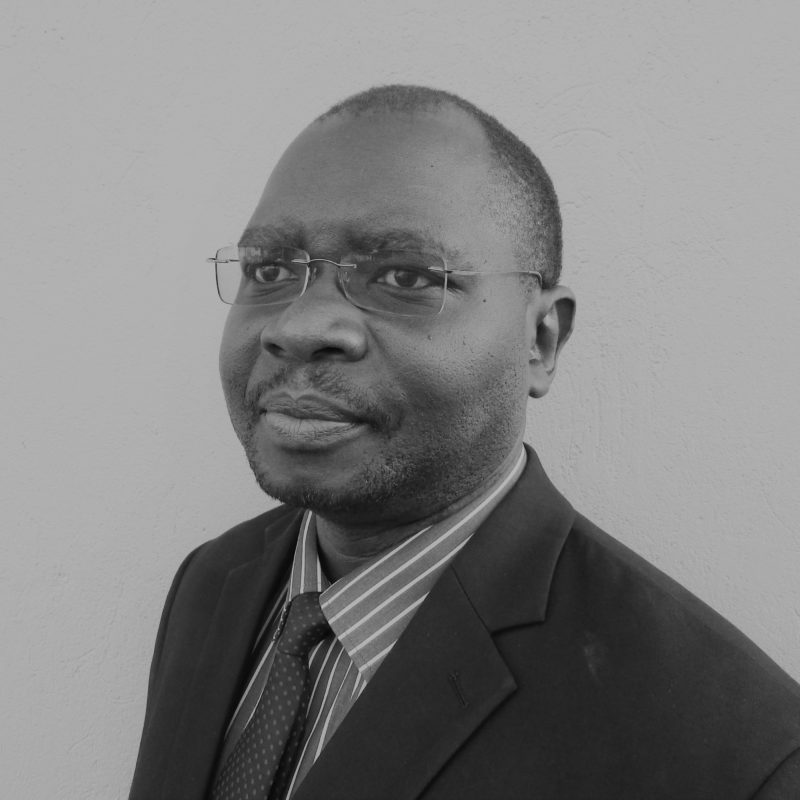
Dr. Peter Olupot
Dr. Peter Olupot-Olupot has 18 years of experience in clinical practice and 10 years in clinical research. His leading research is in mainly in the areas of malaria and Blackwater Fever with a focus on epidemiology, pathophysiology and treatment. His postdoctoral research project is on Acute Kidney Injury in Severe Malaria in Uganda (AKIM).
He is a Senior Lecturer in the Department of Public Health, Busitema University Faculty of Health Sciences, Mbale Campus. He also has international affiliations as Honorary Clinical Senior Lecturer with Imperial College London, UK and Honorary Research Associate at University of Liverpool, UK.
Professionally Olupot-Olupot is registered with the Uganda Medical and Dental Practitioners Council (UMDPC). He is also a member of the Uganda Medical Association (UMA).

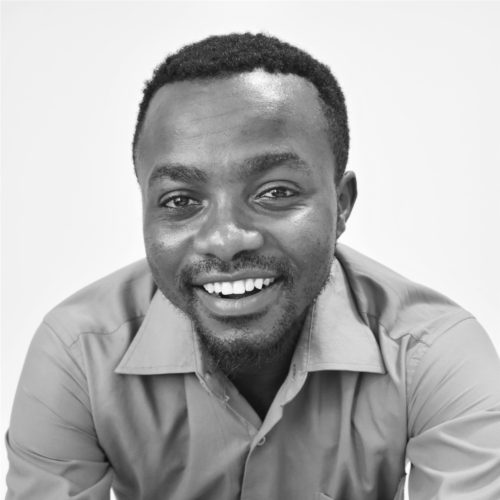
Dr. Ian Oyaro, BVM
 Email : IOyaro@kemri-wellcome.org
Email : IOyaro@kemri-wellcome.org Ian Oyaro has worked on sequencing and proteomic based techniques in a quest to improve diagnosis of febrile coma at the Kenyan coast. Additionally, he has also been involved in protocol optimisation studies for disease proteomics. Oyaro is interested in the evaluation of the role of early HIV-specific T and B cell interactions in predetermining downstream antibody function, in a quest to inform vaccine development. While clinical trials have shown favourable efficacies of several HIV/AIDS intervention techniques such as medical male circumcision, it is of great importance to develop a vaccine, as the currently existing methods require either behaviour change or expensive medical interventions. Determination of early immunological correlates that influence the development of broadly neutralising antibodies may suggest coherent approaches for successful vaccine development and identify useful biomarkers for assessing candidate vaccine immunogens. These biomarkers may hold the key to the development of antibody-based HIV vaccines.

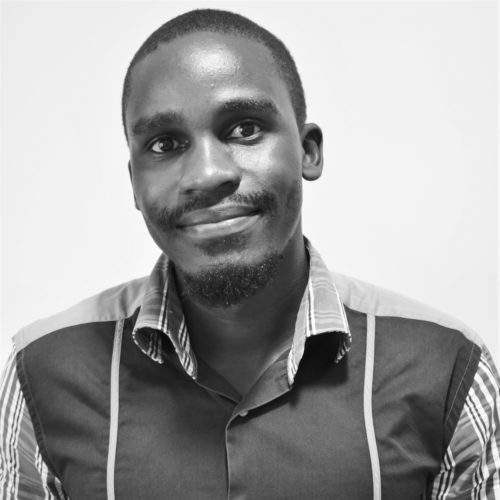
David Collins
 Email : DCollins@kemri-wellcome.org
Email : DCollins@kemri-wellcome.org Collins is a molecular virologist interested in the applications of molecular techniques and bioinformatics in investigating infectious diseases. He holds a Bachelor’s in Biomedical Technology from the University of Nairobi (First Class Honours) and a Master’s in Molecular Genetics and Diagnostics from the University of Nottingham. He is currently an IDeAL PhD student under the Virus Epidemiology and Control Group. His PhD seeks to understand the introduction, evolution, and transmission of the 2009/2010 pandemic influenza A(H1N1)pdm09 virus in Kenya
He has previously worked as a research scientist with the Centers for Disease Control and Prevention-Kenya; a current collaborating institution for his PhD project.

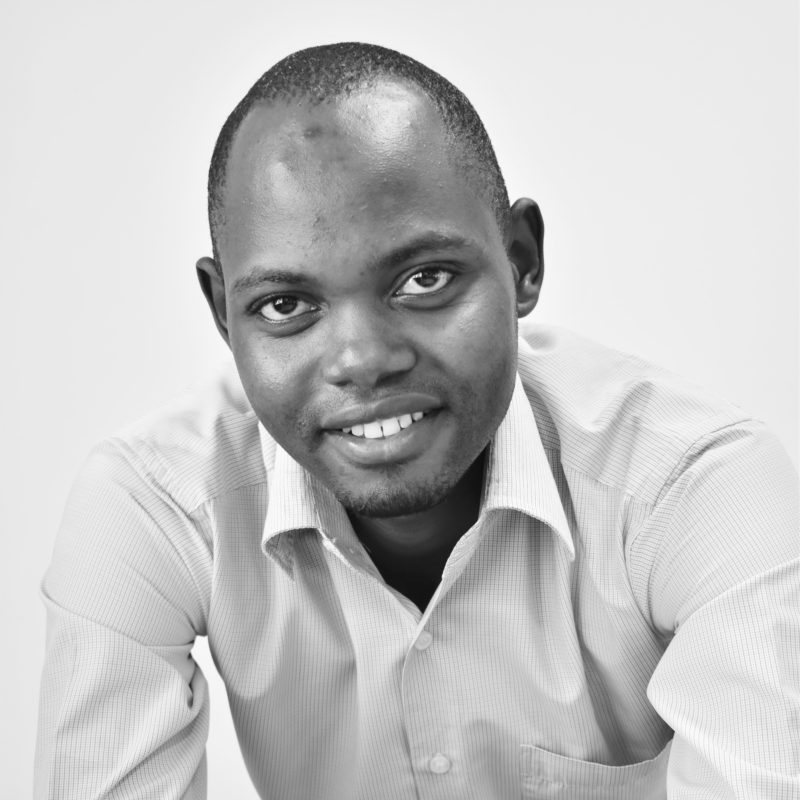
John Muthii Muriuki
 Email : JMuriuki@kemri-wellcome.org
Email : JMuriuki@kemri-wellcome.org I’m an epidemiologist with experience in mathematical modelling and analysis of large datasets. I previously worked on modelling transmission dynamics of malaria in an irrigated setting and mapping of the drivers of poor nutritional outcomes in different ecological settings in Kenya. These studies sparked my current interest to research on the complex interactions between nutrition and infections. My PhD project entails investigating whether iron status is causally associated with the risks of malaria and bacterial infections in African children. I’m utilising Mendelian randomization to draw the causal inference. My study will also identify novel genetic variants that alter iron status in a genome-wide association study of African children. Currently, the safety of giving iron supplementation remains a long-standing conundrum among clinicians and policy makers. This study will therefore have an impact on public health policy for managing iron deficiency and the associated infections. In future, I hope to extend this concept to understand how nutritional deficiencies relate to other disease processes.
Publications:
- A comparison of malaria prevalence, control and management strategies in irrigated and non-irrigated areas in eastern Kenya. Muriuki J.M., Kitala P., Muchemi G., Njeru I., Karanja J., Bett B. | Malaria Journal, 2016 15:402 DOI: 10.1186/s12936-016-1458-4
- Muriuki John Muthii, Alexander Mentzer, Gavin Band, James Gilchrist, Tommy Carstensen, Swaib Lule, Morgan Goheen, et al. (2019). “The Ferroportin Q248H Mutation Protects from Anemia, but Not Malaria or Bacteremia.” Science Advances 5 (9): eaaw0109. https://advances.sciencemag.org/content/5/9/eaaw0109
- Muriuki John Muthii, Alexander J Mentzer, Emily L Webb, Alireza Morovat, Wandia Kimita, Francis M Ndungu, Alex W Macharia, et al. (2019). “Malaria Is Causally Associated with Iron Deficiency in African Children.” AAS Open Research. https://aasopenresearch.org/documents/2-141
- Muriuki John Muthii, Alexander J Mentzer, Wandia Kimita, Francis M Ndungu, Alex W Macharia, Emily L Webb, Swaib A Lule, et al. (2018). “Iron Status and Associated Malaria Risk Among African Children.” Clinical Infectious Diseases. https://www.ncbi.nlm.nih.gov/pubmed/30219845
- Muriuki John Muthii, and Sarah Atkinson. (2018). “How Eliminating Malaria May Also Prevent Iron Deficiency in African Children.” Pharmaceuticals 11 (4): 96. https://www.ncbi.nlm.nih.gov/pubmed/30275421.
- Muriuki John Muthii, Philip Kitala, Gerald Muchemi, Ian Njeru, Joan Karanja, and Bernard Bett. (2016). “A Comparison of Malaria Prevalence, Control and Management Strategies in Irrigated and Non-Irrigated Areas in Eastern Kenya.” Malaria Journal 15 (1): 402. https://malariajournal.biomedcentral.com/articles/10.1186/s12936-016-1458-4

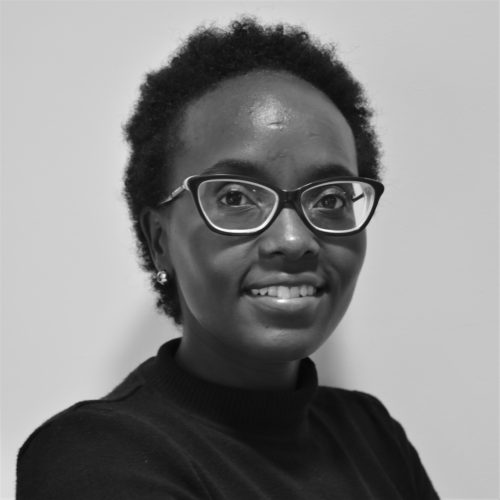
Alice Kamau
 Email : AKamau@kemri-wellcome.org
Email : AKamau@kemri-wellcome.org Alice Kamau is a statistician who has worked at the KEMRI-Wellcome Trust Research Programme since 2011. In 2014 she was awarded a Wellcome Trust Fellowship to study Msc Medical Statistics at the London School of Hygiene & Tropical Medicine and to undertake an 18 months project on the variation of the effectiveness of insecticide treated nets (ITNs) in Kilifi, which aimed at understanding the epidemiological and ecological characteristics of residual malaria transmission and the biological implications of long-term and widespread use of ITNs.
Her PhD work is aimed at examining potential utility of an array of routinely gathered metrics in predicting variation in malaria transmission. The resultant of this work will not only be used to identify the most promising metrics that can serve as a replacement of more expensive community-based prevalence surveys but also to assess the impact of interventions and react to changes in malaria prevalence by identifying the affected population and adjust malaria control to this group as well as inform policies and decision making.



